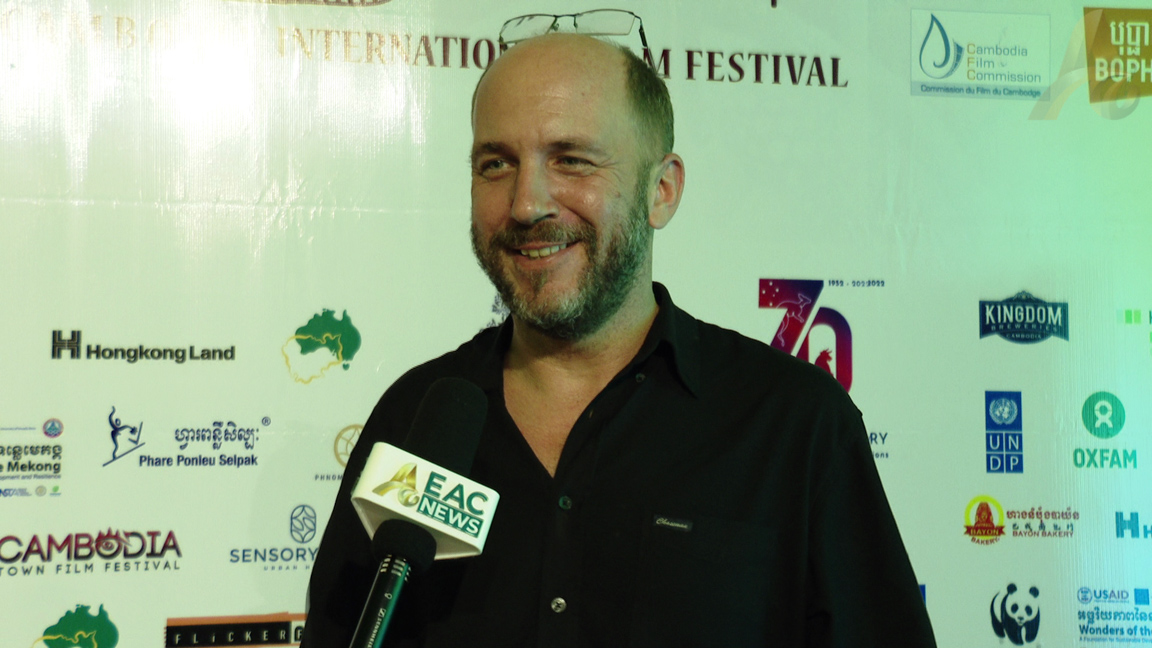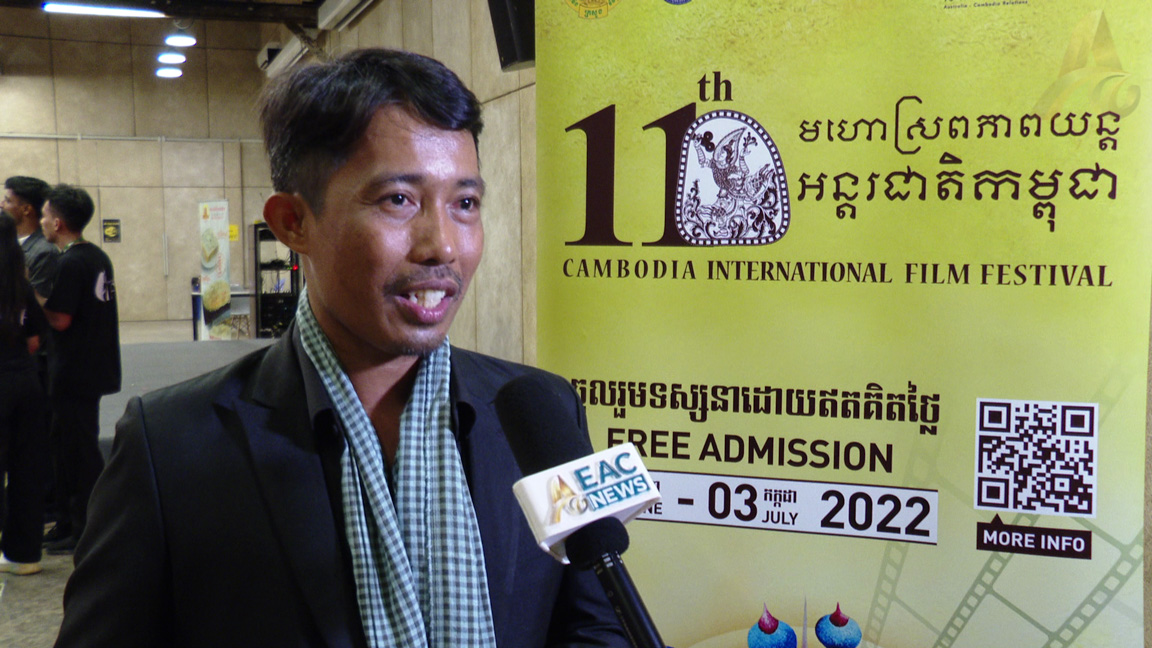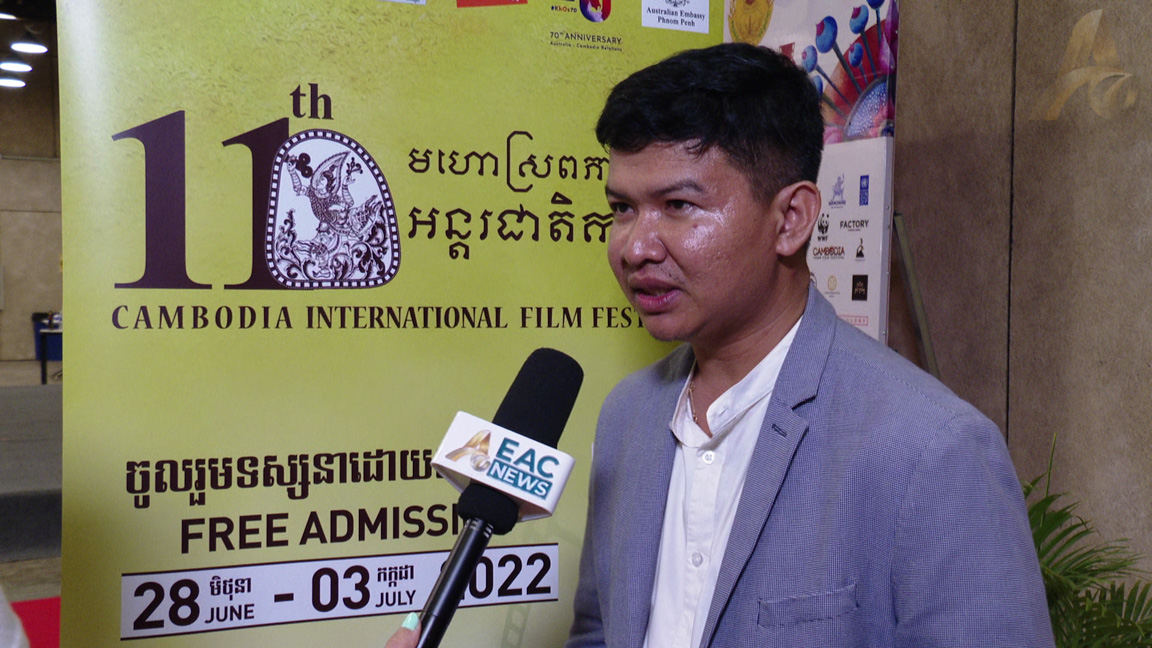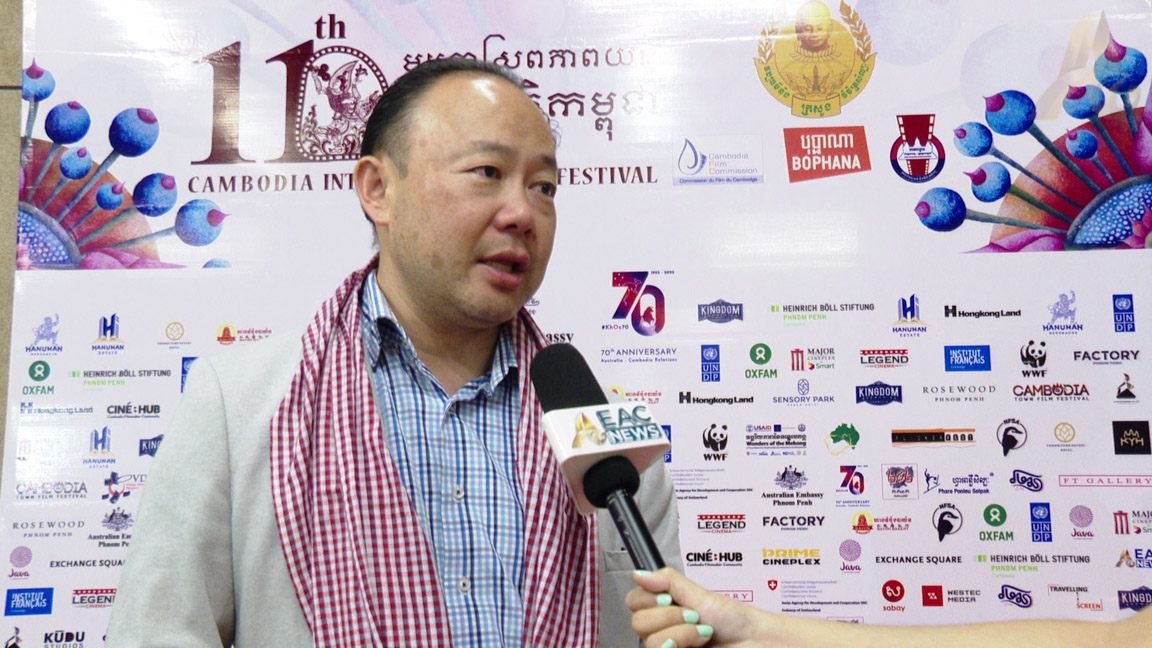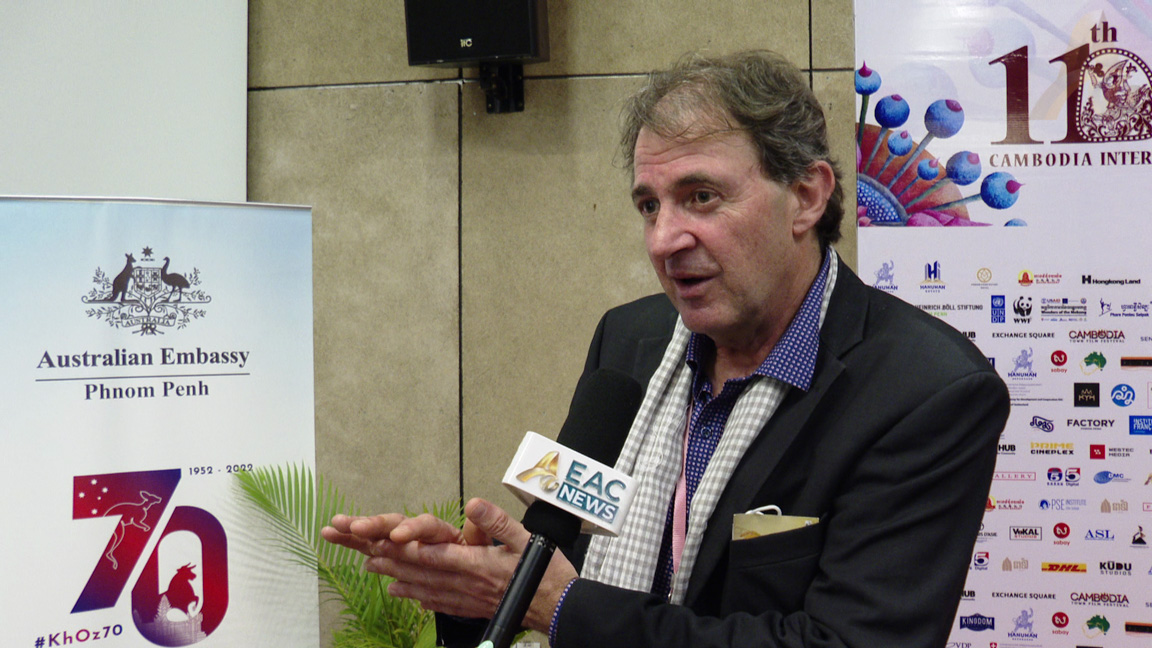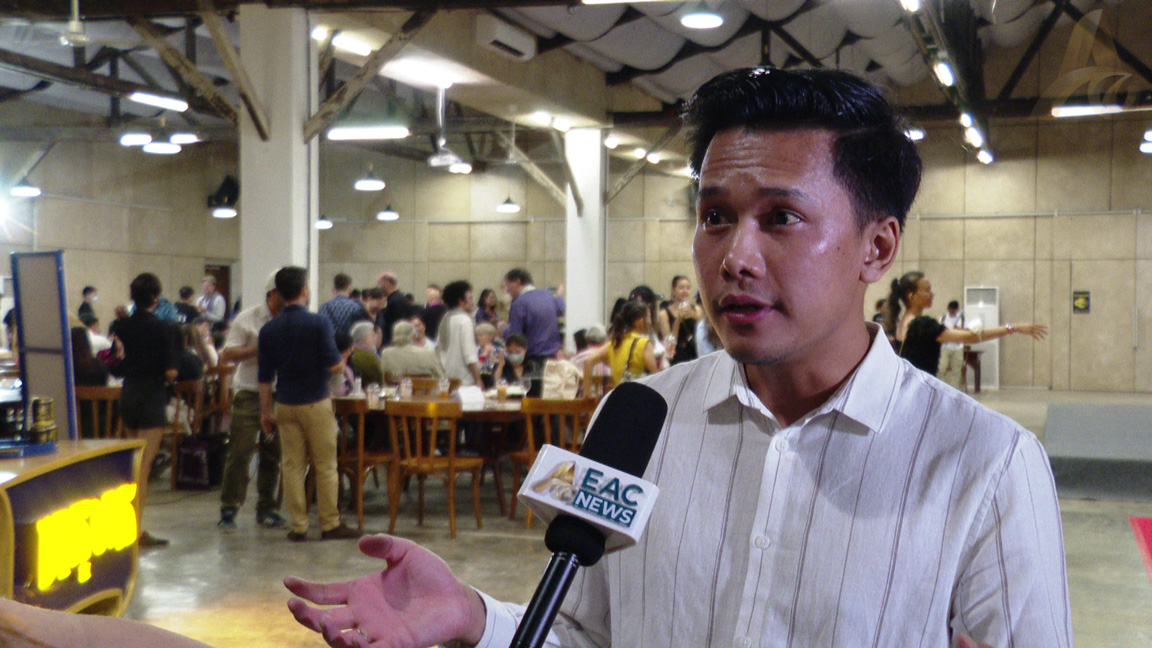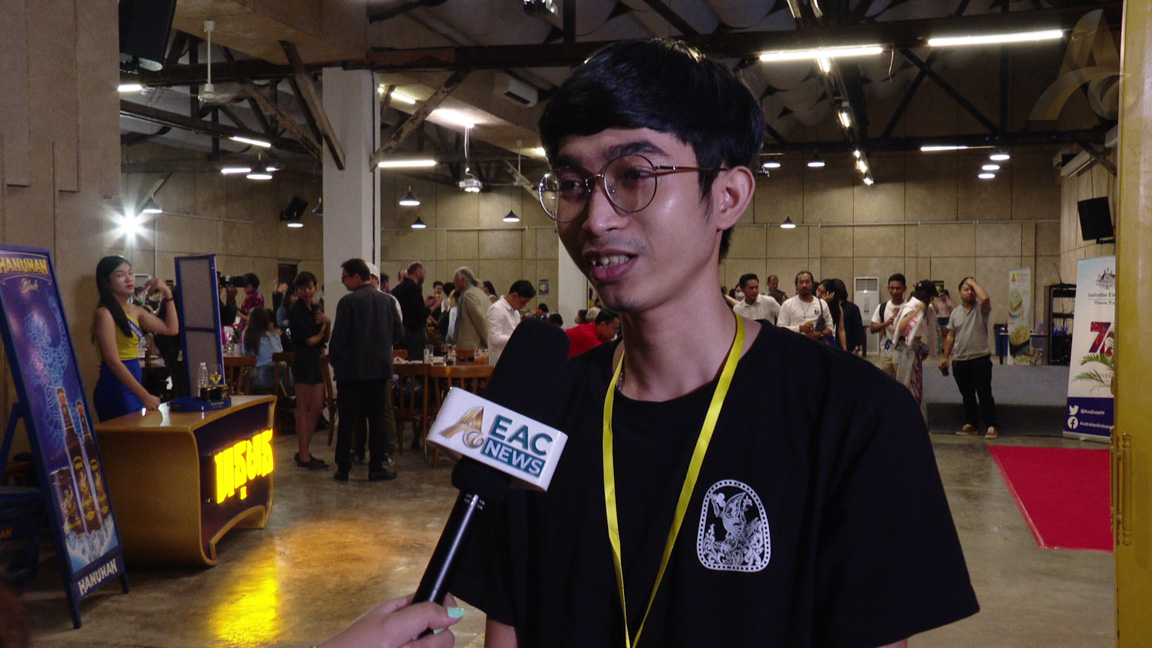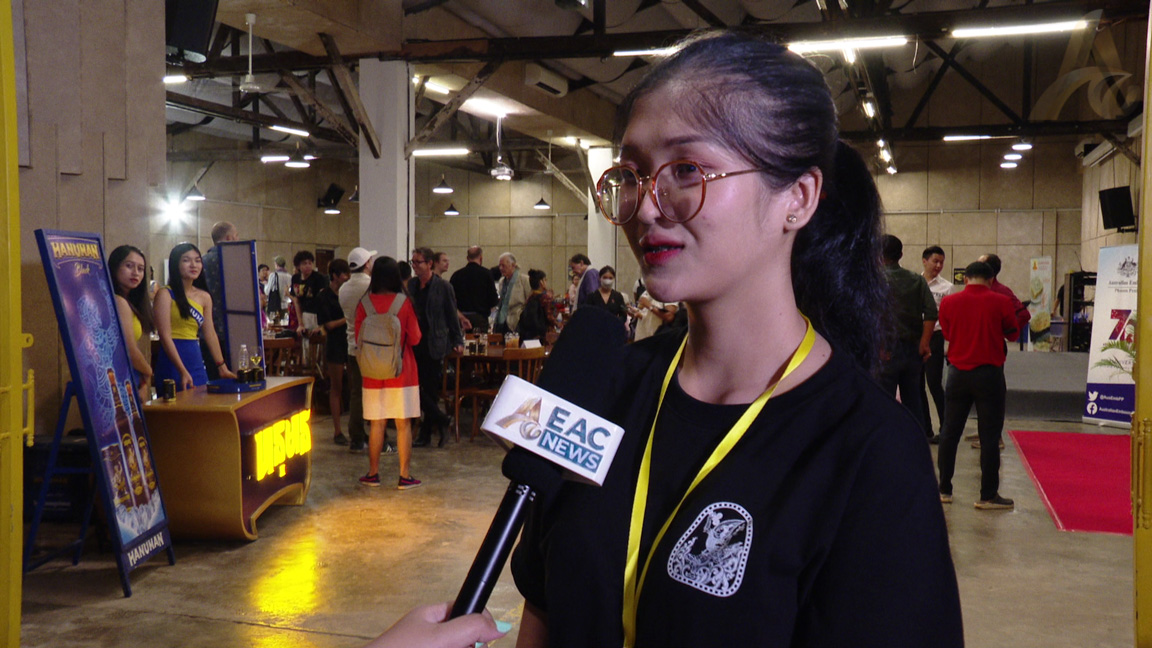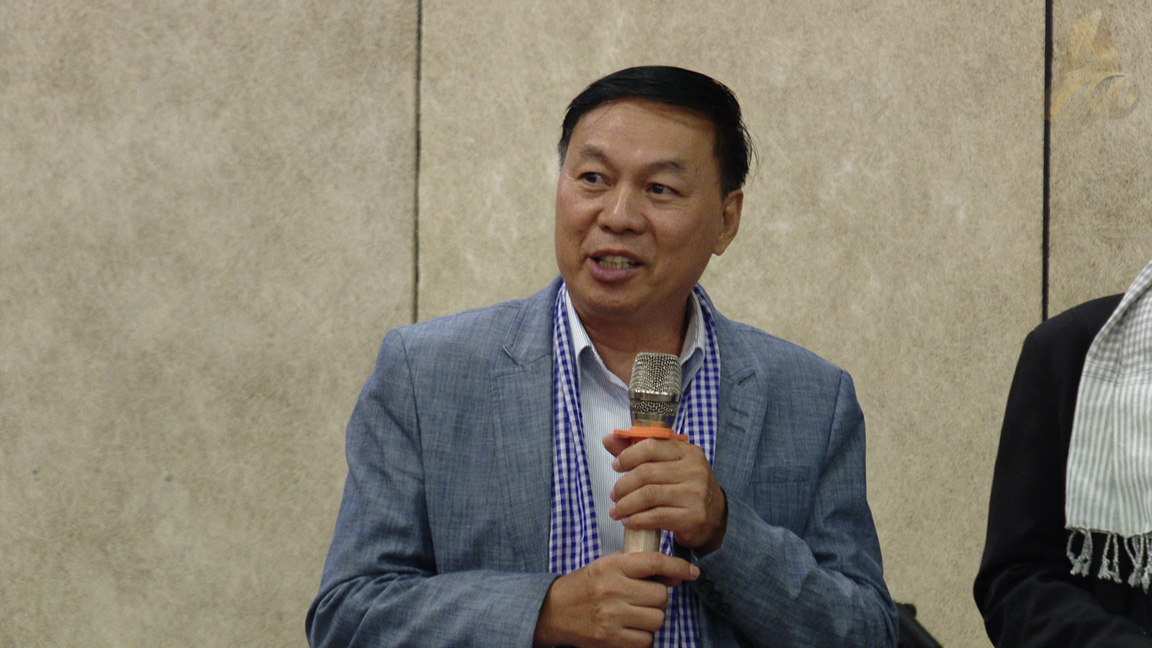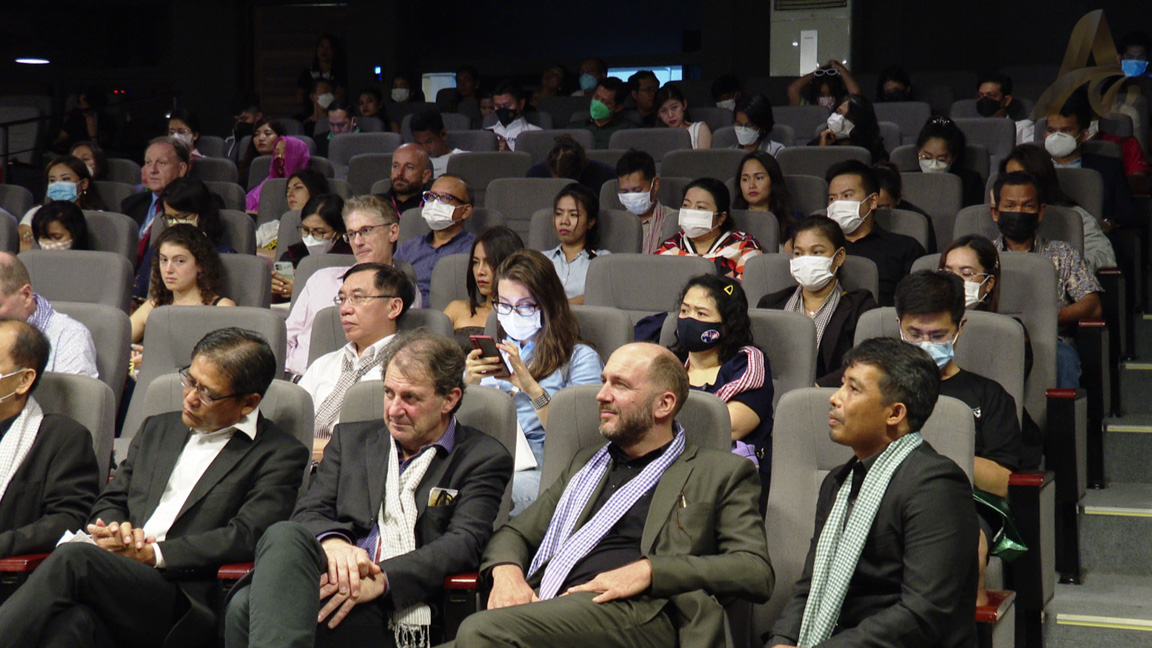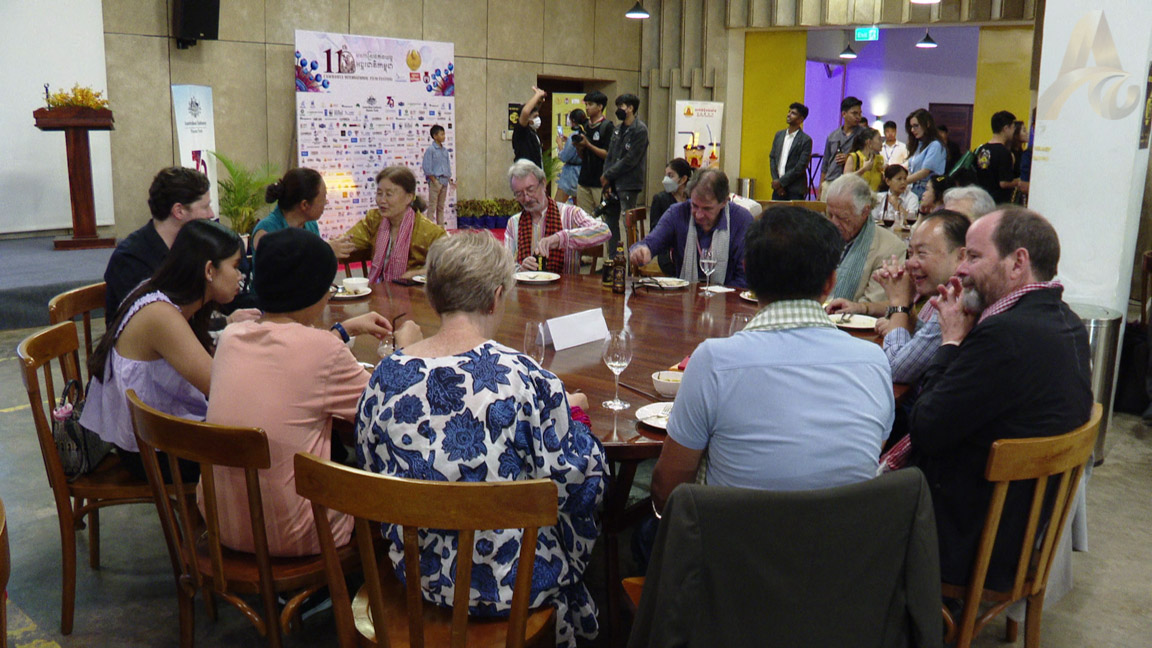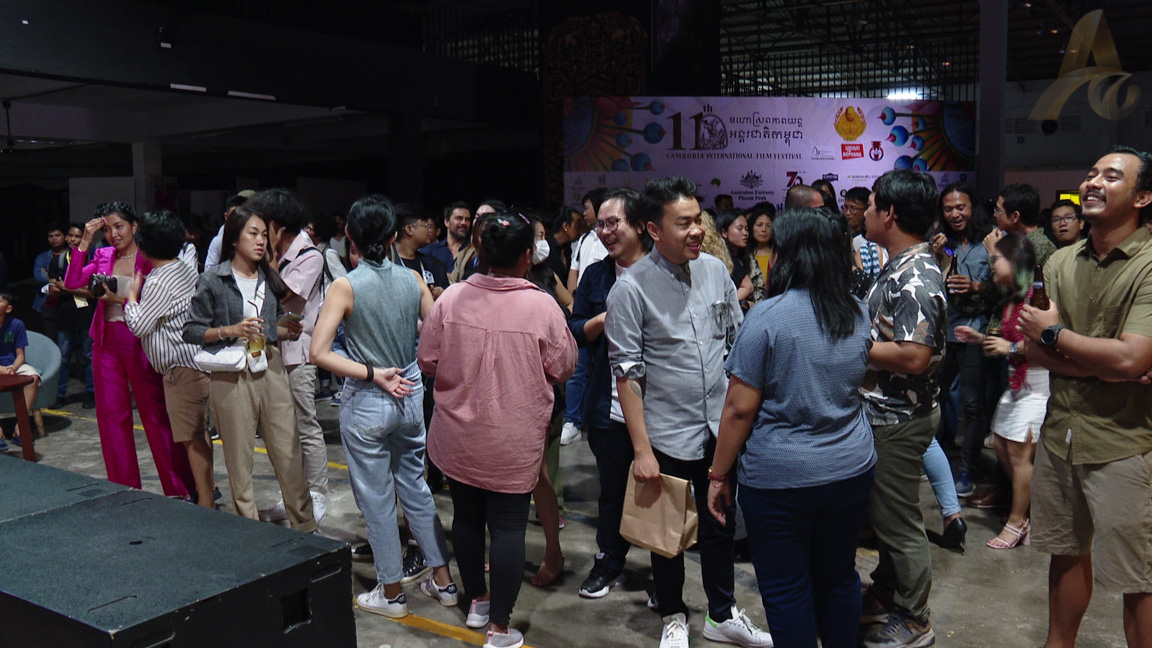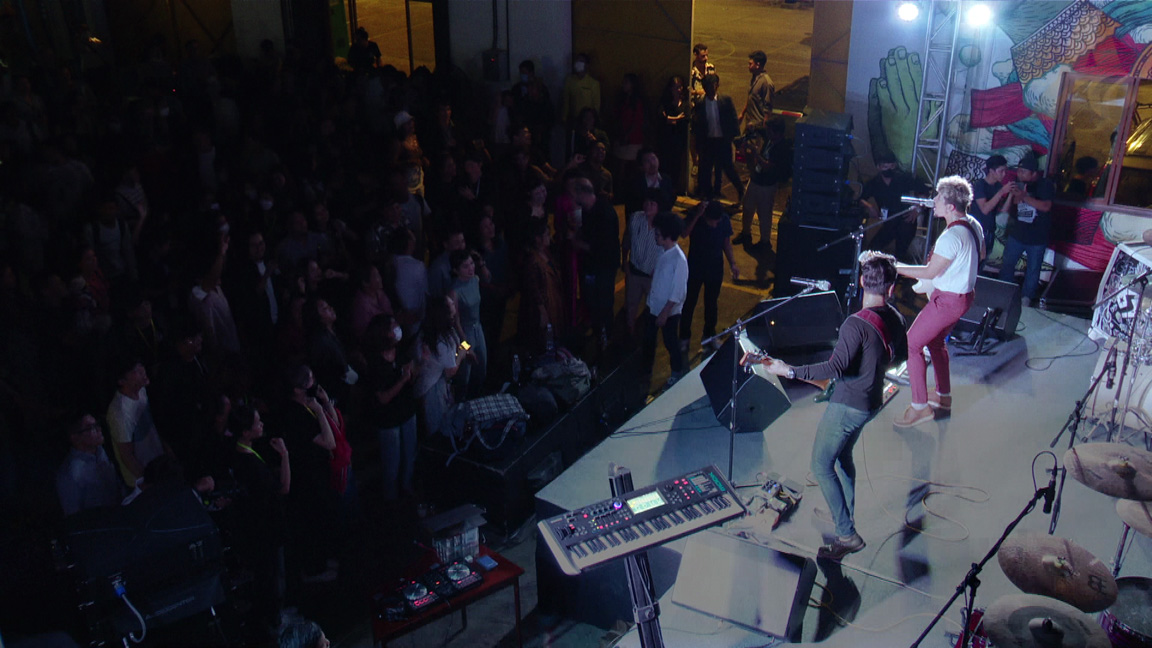PHNOM PENH: Following six days of screenings, masterclasses and other film related events, the 11th edition of the Cambodia International Film Festival (CIFF) successfully came to an end on Sunday, 3 July.
This year’s program featured 144 films from 26 countries, including 62 Cambodian films, and 20 films under the special Australian Panorama program, organized in collaboration with the Australian Embassy in Cambodia to commemorate the 70th Anniversary of the Establishment of Diplomatic Relations between Cambodia and Australia.
There were also an additional 36 events, including masterclasses, cinema talks and discussions, which allowed for the exchange of knowledge and experiences between film experts, members of the film industry and audience members.
The festival’s closing ceremony was held at Factory Phnom Penh and was attended by prominent members of the Cambodian film industry, international guests invited for the festival, Ministry officials, and the Australian Ambassador to Cambodia. The Director of CIFF, Cedric Eloy, and the Executive Director of the Bophana Center, Chea Sopheap, shared some of the main highlights from this year’s festival.
These included the hugely successful IMAX screening of ‘Angkor: The Lost Empire of Cambodia,’ which was held at the biggest venue of the festival but was so fully-packed that the director of the film, Murray Pope, and the CIFF team themselves were unable to get seats. The premiere of ‘The Face of the Mekong,’ with Sai, part of an Oxfam project raising awareness about the importance of the Mekong river, was a broad success, and the actor Sai was also awarded CIFF’s very first Beautiful Planet Award for his contribution to environment education through film.
Cambodian-Australian filmmaker, Allisson Chhorn, came all the way from Adelaide to present her work in Cambodia for the first time, highlighting CIFF’s importance as a platform for connecting artists in the Cambodian diaspora. The Cambodia in Short screenings were also hugely successful, showcasing the talents of many young Cambodian filmmakers, and the much anticipated ‘Everything Will Be Ok,’ Rithy Panh’s latest award-winning film, was screened with his presence, followed by an emotional Q&A.
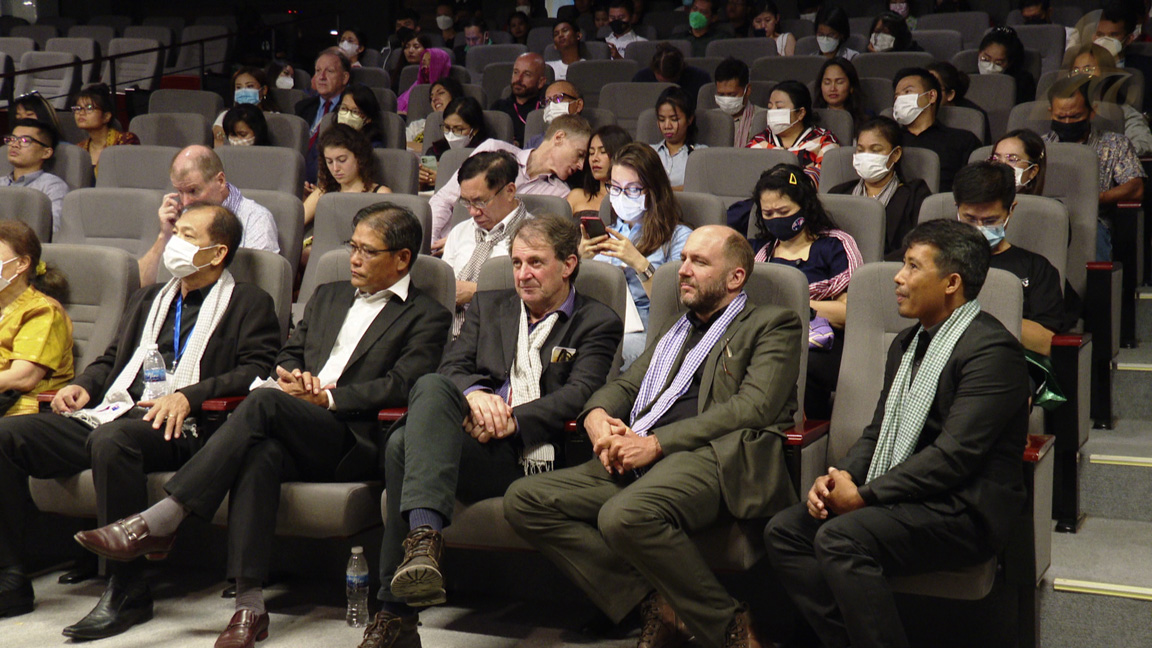
They further shared that social media engagement for the festival’s Facebook page had reached half a million people, and the audience numbers for the screenings were somewhere around 26,000 people.
The massive turnout and success of the festival was something of an unexpected but very pleasant surprise for the festival organizers. The General Secretary for CIFF, So Chandara, said this was especially so since they had such a short amount of time to bring the festival together. The team had only received approval for the festival from the Ministry of Culture and Fine Arts in April, after cinemas were finally able to reopen, and had spent the past two months knee-deep in preparations.
CIFF Director, Cedric Eloy, also spoke with EAC News about how difficult it had been when the 10th edition was cancelled due to the pandemic.
“It was a tough time, because 2020 was the 10th anniversary,” said Eloy. “We had ‘The Village’ at the Exchange Square, we had a lot of events lined up, not only cinema . . . we had a lot of performers, they were just ready to go on stage, and we just had to call them and say everything is canceled."
However, after a two year wait, he said he is very happy and satisfied with how CIFF has come alive again.
Bophana Center Executive Director, Chea Sopheap, said he is very thankful to all the volunteers, staff, partners and sponsors for helping and contributing their efforts to bring this festival back, and is so thrilled with the results that he struggled to find the words to convey his happiness.
“I really appreciate the contribution of the people around us, including the Ministry of Culture and Fine Arts, our donors, our sponsors, our young people, our filmmakers, you know, after two years!” said Sopheap. “But the people that we also should not forget is the audience that have been indoors for several months, for more than two years. . . . You can see that they turned out unexpectedly, especially during the opening of the CIFF on 28 June in Chaktomuk theater. And then the following days we saw a number of people coming in to see films, staying for discussions. This is really meaningful.”
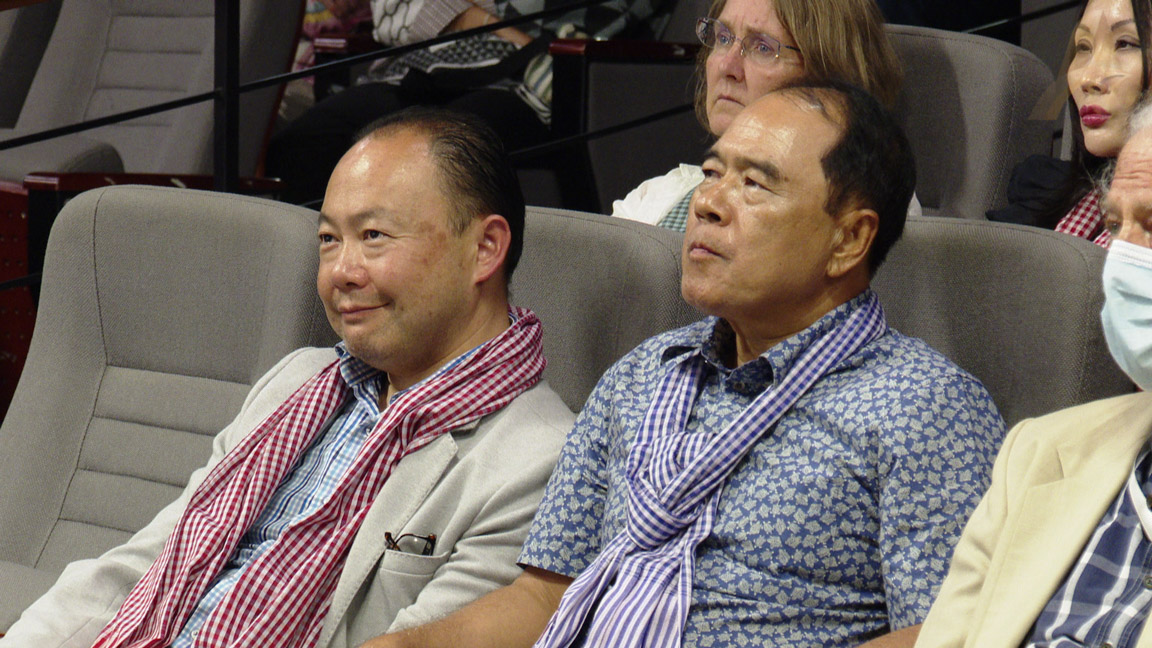
Australian Ambassador, Pablo Kang, gave a short speech congratulating CIFF for a successful edition and underlined that all of this was only possible because Cambodia had successfully implemented its national vaccination campaign, which allowed for cinemas to reopen again. He said because this year Cambodia and Australia are celebrating 70 years of diplomatic relations, the Embassy helped program the Australian Panorama, choosing 20 films that spanned the last seven decades since relations were established, symbolizing the longevity of this relationship.
He gave special mention to the importance Australia places on creating linkages with indigenous communities and artists, which has translated into the Embassy supporting the Bophana Center’s program for Cambodian indigenous filmmakers, and which also helped inform a facet of the festival’s program shining a spotlight on indigenous voices.
Ambassador Kang also spoke with EAC News about why the Embassy thought the film festival was a perfect way to commemorate this relationship.
“While we’re talking about diplomatic relations, the foundation of any strong relationship between two countries is the people-to-people connections, and that’s very much evident through arts and culture, and film is a very important part of that as you know,” he said. “Cambodia is an incredibly young society, roughly two thirds of the population is under 30 and love going to the movies, there’s been such a great interest in all movies shown in the festival, including the Australian movies here this week.”
Richard Kuipers, an Australian film critic for the international trade paper Variety, has been involved with CIFF since it first began over a decade ago, and was the main curator for the Australian Panorama. Given his long relationship with Cambodia, he has a certain sensitivity to what Cambodian audiences might respond to, so he was the perfect choice for curator and worked with the Australian Embassy to make the selection.
“What I looked at, most importantly, was presenting a panorama of Australian cinema, and that means a panorama of Australian life, trying to show an audience in Cambodia a very broad cross section of Australian cinema and Australian life, to show comedies, dramas, horror films, a documentary, things that showed how Australian society has itself changed over the years,” said Kuipers, elaborating on how he made his selection for the panorama.
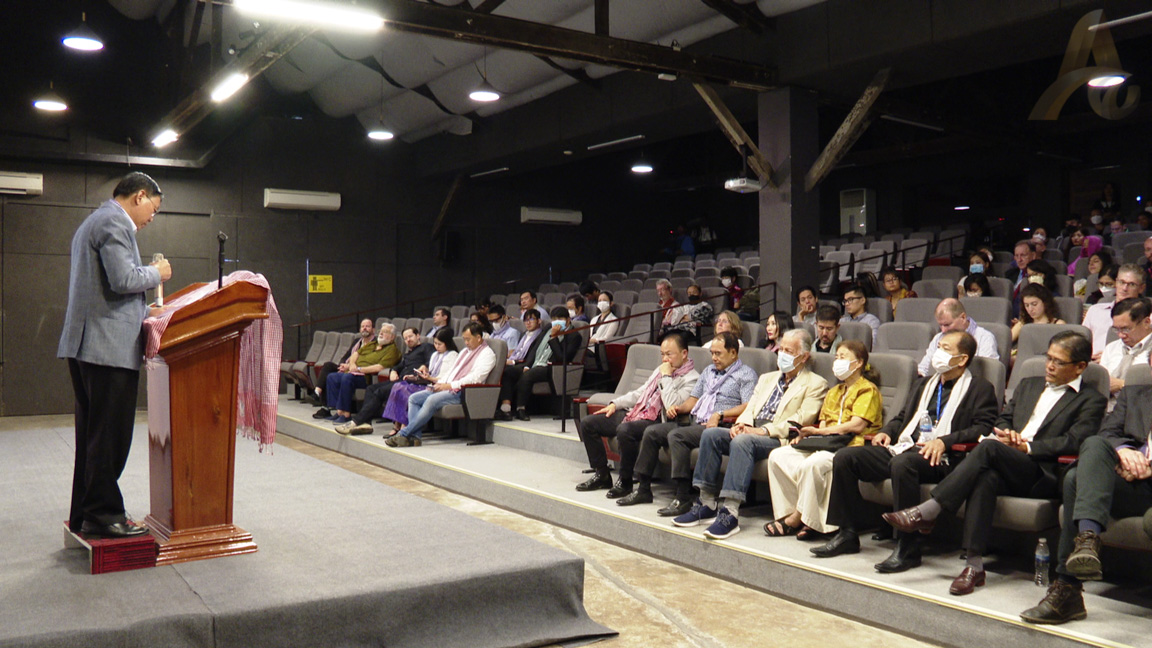
The Secretary of State of the Ministry of Culture and Fine Arts, Hab Touch, was the final speaker of the night. He congratulated the CIFF team and commended their efforts in creating such a unique program showcasing the cultural bridges between Australia and Cambodia in film. He also praised CIFF for highlighting local talents and providing rich content on livelihood, art and culture, especially of indigenous communities living along and around the Mekong.
He reaffirmed that the Ministry of Culture and Fine Arts considers this annual festival to be an essential element in promoting and supporting the Cambodian film industry as part of the Royal Government’s strategy for cultural and economic development, before officially declaring the closing of the 11th CIFF.
The closing screening of the Australian panorama and the festival as a whole was the 2016 Australian biographical drama film, ‘Lion,’ which was personally chosen by the Australian Ambassador himself. An emotional and powerful story about adoption, Ambassador Kang said he chose the film as he thought it would resonate with many audiences.
“It’s a really good, I think, indication of the incredible cultural and ethnic diversity that makes up Australia today,” added Ambassador Kang. “In Australia, more than half of the population, about 52% of Australians were either born overseas or had one or both parents born overseas, and certainly that comes to fore in Lion and it’s just a really interesting story, and a story that would resonate with Cambodians of course, which has its own experience with adoption over the years.”
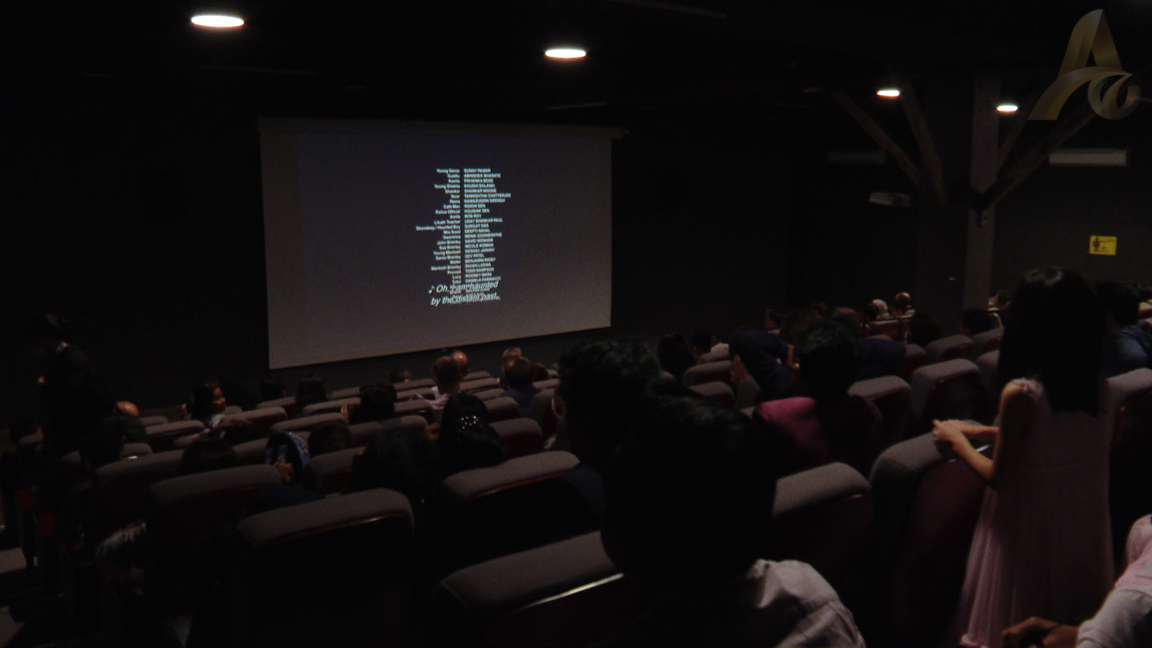
A modest dinner reception was held after the screening, where invited guests were able to grab a bite to eat, watch a video recapping all the main highlights from the festival and chat with one another.
Catching up with Sai, the winner of CIFF’s very first Beautiful Planet Award, during the reception, he said he felt excited and happy to have been given this great honor, and felt that this award was only possible because of the whole team who worked on the documentary. Remarking on the festival as a whole, he said he felt the 11th edition was a great success and gives real hope for filmmakers in Cambodia.
“Every year, we have this film festival, which is a place where filmmakers can go to screen their films and have the opportunity to win awards, which encourages those filmmakers doing good work to continue,” said Sai.
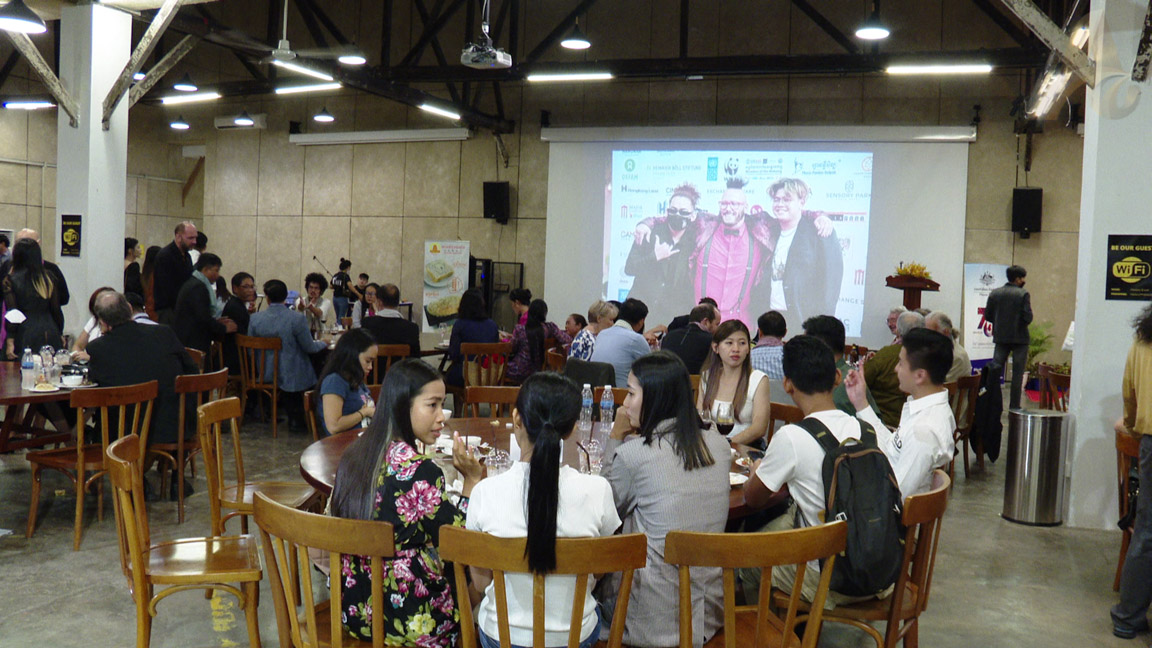
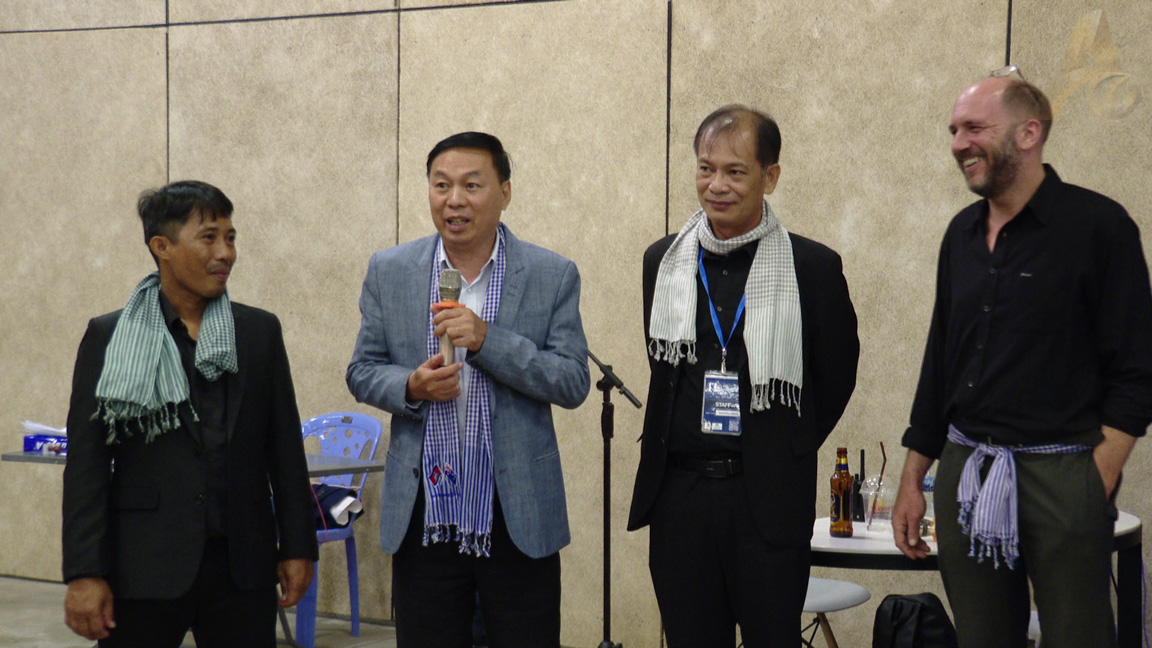
One key force which, in many ways, acted as the backbone of the festival, was its hundreds of volunteers who worked tirelessly to keep all the events running smoothly. Pon Sovanrotha, a 20-year-old civil engineering student, said he got involved in the festival to do his part to help the Cambodian film industry. Another volunteer, 19-year-old Horn Sophearatana, remarked on how much she enjoyed the chance to watch many films and help out with this event.
The importance of CIFF for the local film industry cannot be understated, and over the past 12 years, the festival has only grown bigger and more successful. Richard Kuipers said he can see a direct relationship between the establishment of CIFF in 2010, and the increasing prominence of Cambodian cinema.
“The Cambodian Film Festival was established around about the same time as the Cambodian Film Commission, and at the same time, we find that there are some new Cambodian films appearing because there's a film commission. . . . There is now somewhere for those films to be seen in their own country. At the same time, we have an incredible growth in cinemas, the multiplexes that have been built here, and cinema attendance in Cambodia has just gone through the roof. So, all of these things have interacted with each other. And they're absolutely interlocked in regard to the development of the Cambodian film industry.”


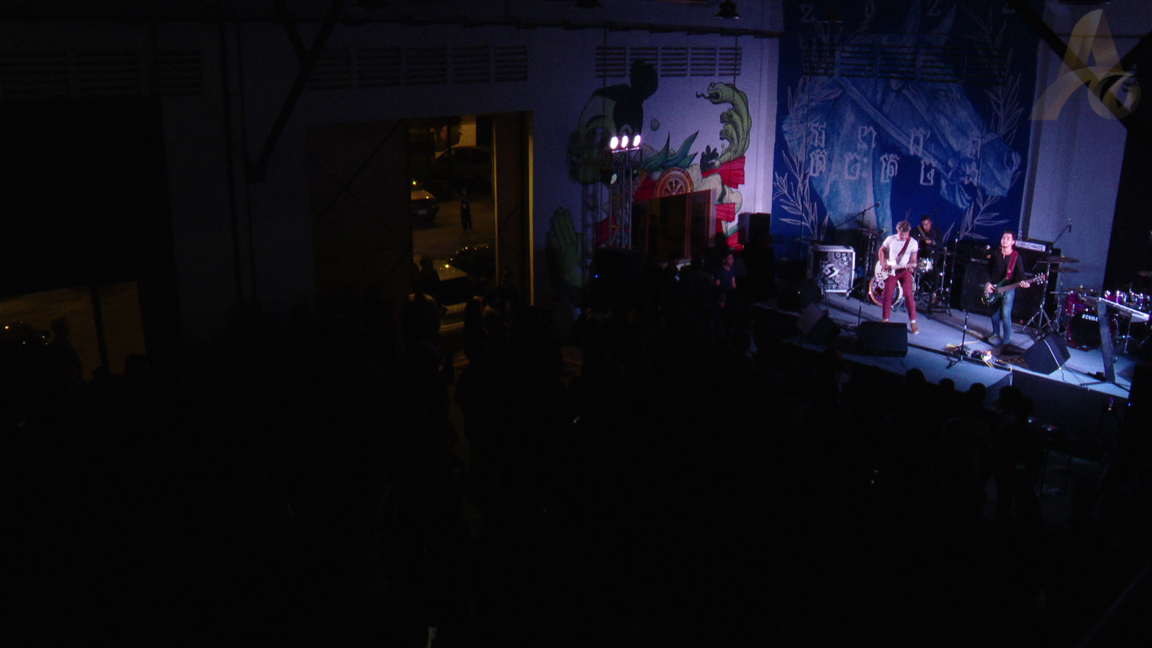
The night ended with a big closing party at the Factory Phnom Penh’s FT Gallery, with performances by artists from KlapYaHandz and Rondom, where many attendees and volunteers could be seen dancing the night away. This was also finally a chance for the CIFF organizers to take a breath and relax after a hectic week of running around and supervising all screenings and activities.
Director, Cedric Eloy, however, said his team will not have much time to relax as the next edition of the festival already comes in March of 2023, so they will need to start planning and looking for sponsors from August.
“We really need support, I'm really calling out to companies who don't know what to do with their sponsorship money,” said Eloy, in a call to all potential sponsors out there.
“I really invite them to join the festival and to get out there, to really contribute to the development of Cambodia through culture, through films, through the arts, because it's fundamental, and Cambodia has tremendous talents. We have great cinema, we have a vibrant city, we have a government that supports cinema. The Ministry of Culture is very supportive of the arts. This platform, it can grow and really, the sky is the limit. So, I'm very happy if there is more engagement, and if we have more funding, more sponsoring. We have tons of ideas to use [this funding] right.”
The Cambodia International Film Festival is Cambodia's largest international film and cultural event. It is organized by the Cambodia Film Commission and the Bophana Center, and hosted by the Ministry of Culture and Fine Arts. The festival acts as a catalyst for the film sector initiative gathering more than 20,000 participants each year, and also acts as a bridge between Cambodia and the world through the universal language of film and culture.
